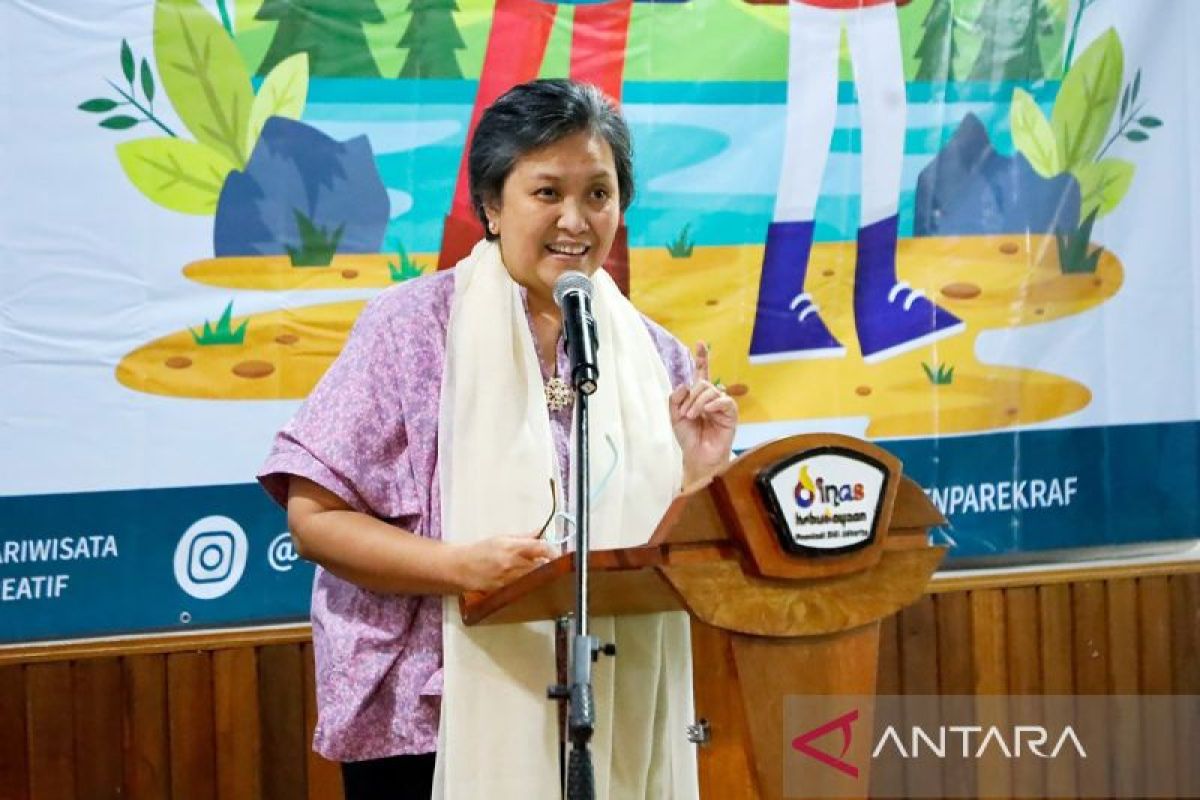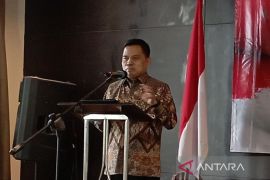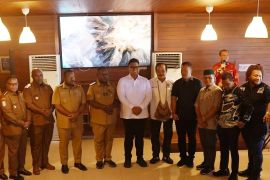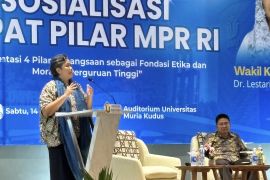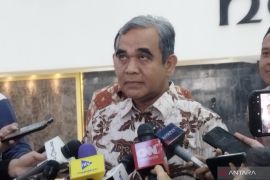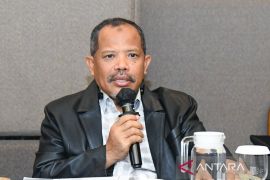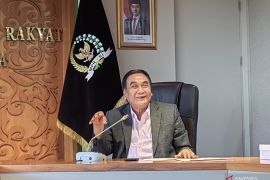Moerdijat underlined that to achieve this end, parties involved in disaster security must establish a system and build adequate infrastructures to carry out prevention and provide information on disasters.
In addition, she said, a real system must be set up by related parties to ease the concerns of people living in disaster-prone areas.
In response to this, director of emergency resources support at the National Disaster Mitigation Agency (BNPB), Agus Riyanto, said that his agency has built Multi-Hazard Early Warning System (MHEWS) infrastructure in several regions.
"We are also building tsunami early warning. This is still related to the current theme; we are currently working on it together with the BMKG (Meteorology, Climatology, and Geophysics Agency). From Aceh to Papua, we will build the system," he affirmed.
Furthermore, he said, the BNPB and other stakeholders are also carrying out outreach activities to help the community face disasters that are unpredictable and cannot be prevented.
To this end, he expressed the hope that there will be no more dichotomy during disasters, as egocentrism slows disaster management.
"In (handling) disasters, we cannot be rigid. For example, if a disaster occurs in District A, it is not the responsibility of District B: we cannot be like this. One life is valuable for us all," Riyanto stressed.
Related news: West Sumatra should take disaster mitigation seriously: Minister
Related news: BNPB conducts disaster early warning simulation to anticipate eruption
Translator: Chairul Rohman, Raka Adji
Editor: Rahmad Nasution
Copyright © ANTARA 2024
